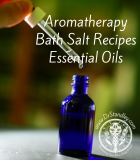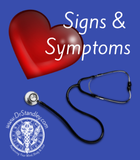
|

|
| Bach Flower Remedies |
Amino Acids A-Z |
Antioxidants A-Z |
Herbs A-Z |
Herbal Preps |
Minerals A-Z |
Vitamins A-Z |
|
|
 |
|
TURMERIC (Curcuma longa)
DESCRIPTION: Turmeric is a natural antioxidant with particular affinity for the liver. The active ingredient, curcuminoid, is especially helpful in protecting many of the fats and lipids which the liver either contains or helps to metabolize. Many recall turmeric as the most common spice found in curry. The root is used in many different medicines (helps decrease swelling), cooking (as a spice) and the oil of turmeric is found in perfumes. POTENTIAL BENEFITS: Promotes healthy circulation. Facilitates in digestion of fats by stimulating the flow of bile. Turmeric is used to relieve headaches, heartburn, arthritis and stomach pain. Additionally, it is used to treat lung infections, gallbladder disorders and liver problems. Turmeric also helps get rid of ringworm, leech bites, wounds and eye infections. POTENTIAL SIDE EFFECTS: Turmeric has anti-platelet effects in vitro, which could have an additive effect with anticoagulants or antiplatelet drugs. Anti-platelet effects have not been demonstrated in vivo, and no adverse effects or interactions have been reported in the clinical trials or from individual cases. For some individuals, a risk of kidney stones is possible. High doses of this herb can lead to indigestion, heartburn, diarrhea, nausea, liver problems, hypotension and increased risk of bleeding. PARTS USED: Rhizome, leaves, root, oil GENERAL USAGE: Chronic inflammation and pain, perfumes and cooking, cancer and depression treatment DISCLAIMER **This web site's goal is to provide you with information that may be useful in attaining optimal health. Nothing in it is meant as a prescription or as medical advice. You should check with your physician before implementing any changes in your exercise or lifestyle habits, especially if you have physical problems or are taking medications of any kind. |
| 314.420.5099 |
| Questions regarding this site: webmaster@drstandley.com |
| Copyright 1999-2026: Dr. Loretta J. Standley - All Rights Reserved. |































